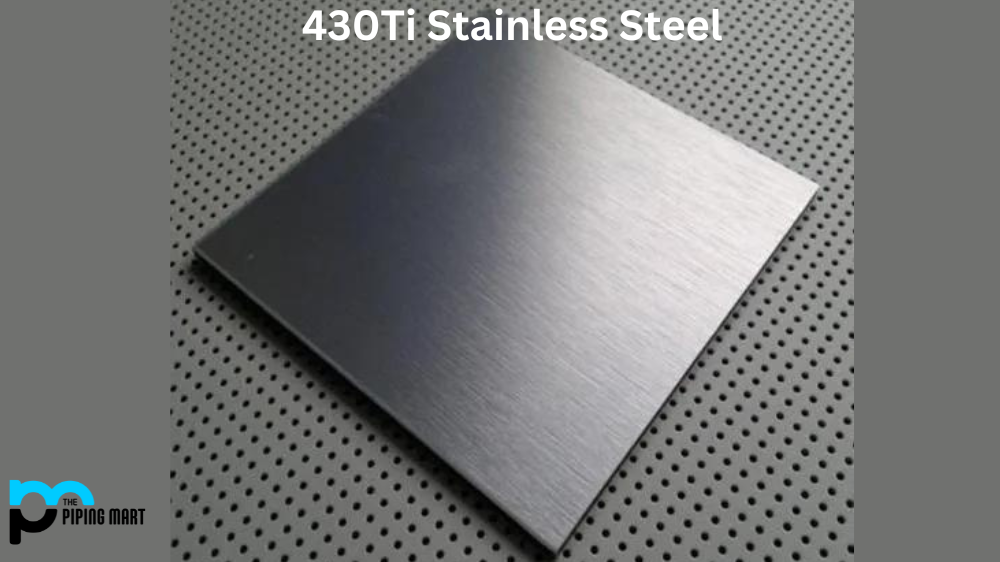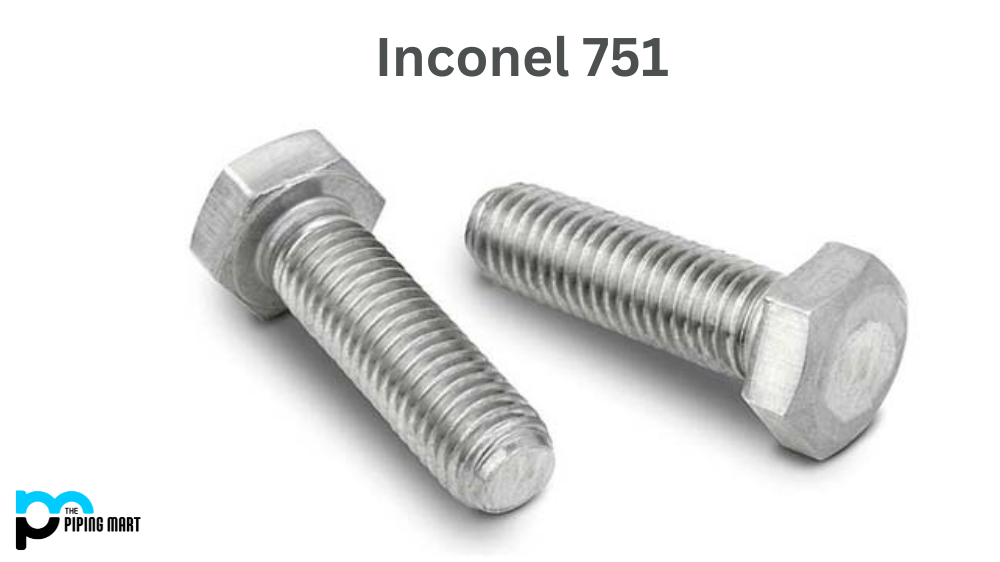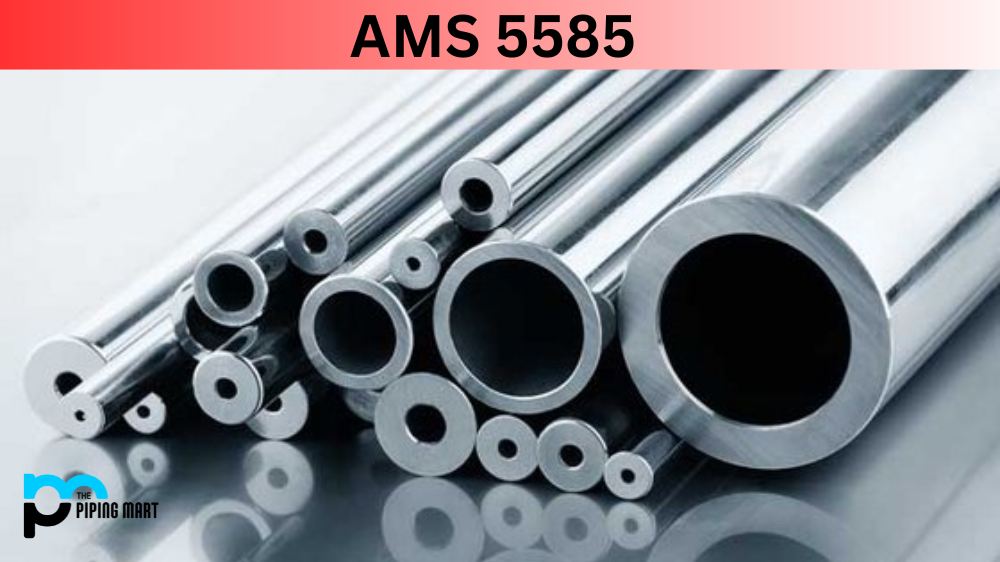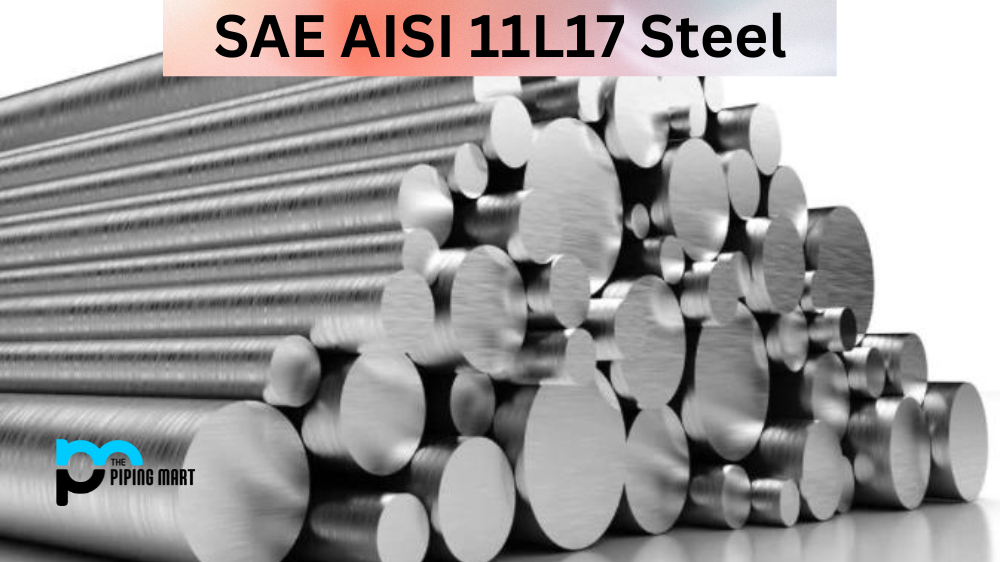For many industries, alloy 430Ti is a popular choice of material due to its physical properties and mechanical properties. Even though it’s not as strong as some other alloys, it offers superior corrosion resistance and good formability. Let’s take a look at what exactly makes alloy 430Ti so special, and why it’s so widely used.
430TI Chemical Composition
Alloy 430Ti consists of iron (Fe) with small amounts of carbon (C), chromium (Cr), manganese (Mn), nickel (Ni), silicon (Si) and titanium (Ti). The addition of titanium in this alloy makes it highly resistant to corrosion. It also helps to make the material softer than stainless steel grades with similar chromium and nickel levels.
| Element | Content (%) |
|---|---|
| Iron, Fe | 76 – 80 |
| Chromium, Cr | 16-19.5 |
| Manganese, Mn | 1 |
| Silicon, Si | 1 |
| Nickel, Ni | 0.8 |
| Titanium, Ti | 0.50 (min) |
| Carbon, C | 0.10 |
| Phosphorous, P | 0.04 |
| Sulfur, S | 0.03 |
430TI Physical Properties
The physical properties of SS 430Ti are excellent for many applications. It has a density of 7.8 g/cm3, which is slightly higher than stainless steel alloys with similar levels of chromium and nickel. Its melting point is 1380° C, making it suitable for welding applications requiring heat resistance. Additionally, this alloy has a relatively low thermal expansion coefficient, which makes it ideal for use in environments where temperature fluctuations occur frequently.
| Properties | Metric | Imperial |
|---|---|---|
| Density | 7.7-8.03 cm3 | 0.278-0.290 lb/in3 |
430TI Mechanical Properties
The mechanical properties of alloy 430Ti SS are also very impressive. This alloy has a tensile strength ranging from 450 MPa to 600 MPa, depending on the composition and condition of the material. It also has excellent ductility, meaning it can be easily formed into various shapes without losing strength or durability. Finally, this alloy has good creep resistance, meaning that it can maintain its shape under high temperatures without deforming over time.
| Properties | Metric | Imperial |
|---|---|---|
| Tensile strength | 515 MPa | 74695 psi |
| Yield strength | 310 MPa | 44962 psi |
| Elastic modulus | 190-210 GPa | 27557-30458 ksi |
| Poisson’s ratio | 0.27-0.30 | 0.27-0.30 |
| Elongation | 30% | 30% |
| Reduction of area | 65% | 65% |
430TI Thermal Properties
| Properties | Metric | Imperial |
|---|---|---|
| Thermal expansion (@ 20-100°C/70-212°F) | 10.1 (µm/m°C) | 5.61 µin/in°F |
430TI Equivalent
- DIN 1.4510
- ASTM A268
- ASTM A554
- ASTM A651
430TI Uses
Due to its impressive physical and mechanical properties, alloy 430Ti is used for various applications in various industries, including aerospace, medical device manufacturing, oil & gas production, food processing equipment manufacturing, automotive parts & components manufacturing and more. Some common uses include exhaust systems for vehicles; kitchen sinks; food processing equipment; aircraft turbine blades; medical implants; valves; pumps; flanges; heat exchangers; fasteners & screws, and much more!
Conclusion
To sum up, alloy 430 Ti is an incredibly versatile material that can be used in many different industries due to its impressive physical and mechanical properties, such as high corrosion resistance and good formability. Its versatility makes it ideal for many applications, such as vehicle exhaust systems, kitchen sinks and food processing equipment, among others! With so much potential to offer across multiple industries, it’s no wonder why this particular grade of stainless steel continues to be one of the most popular choices out there!
Meet Heer, a dynamic and driven writer learning tricks of her trade in the metal industry. With a background in Digital Marketing, Heer brings a unique perspective to her writing, sharing valuable insights. Apart from blogging she like reading and hiking.




